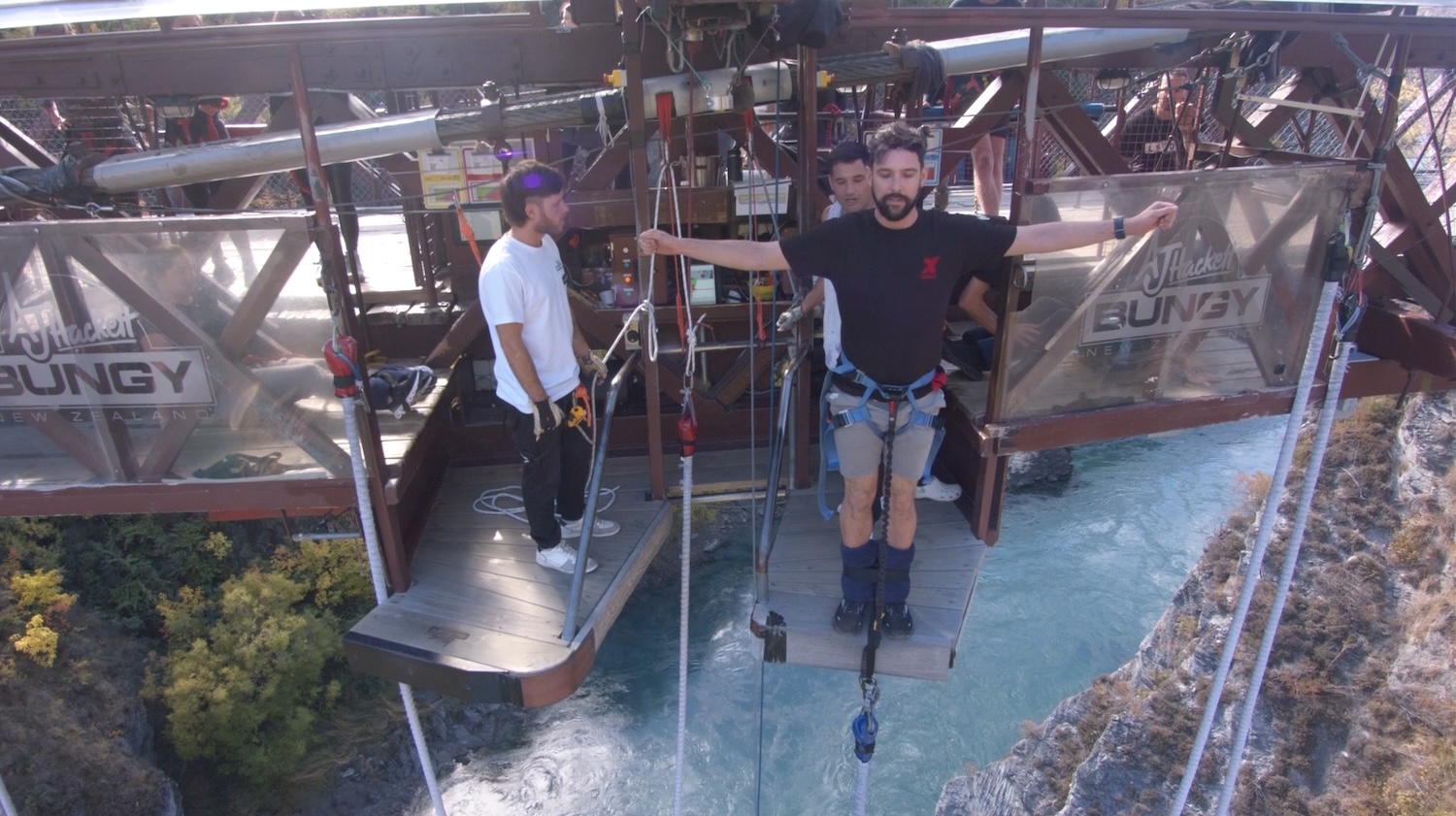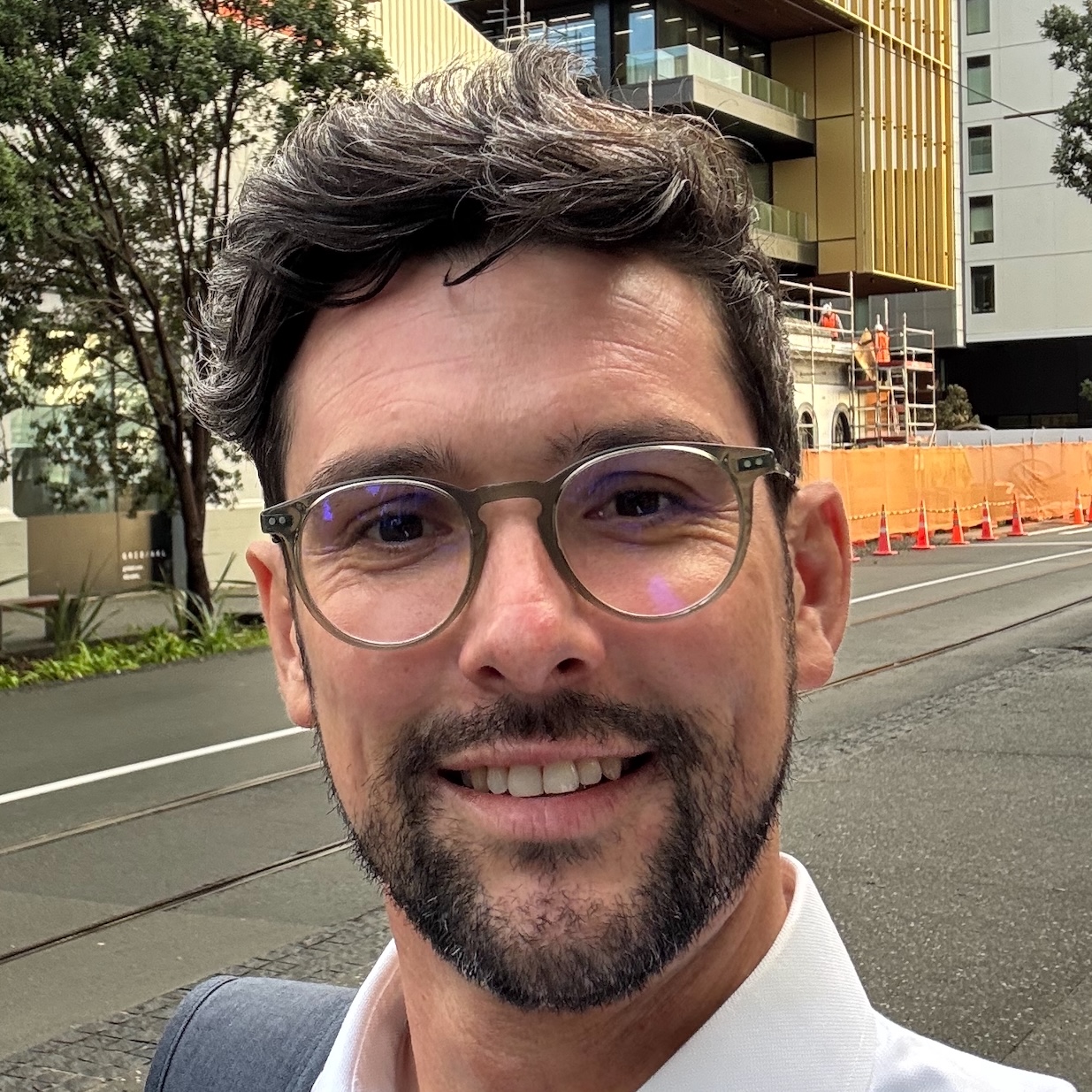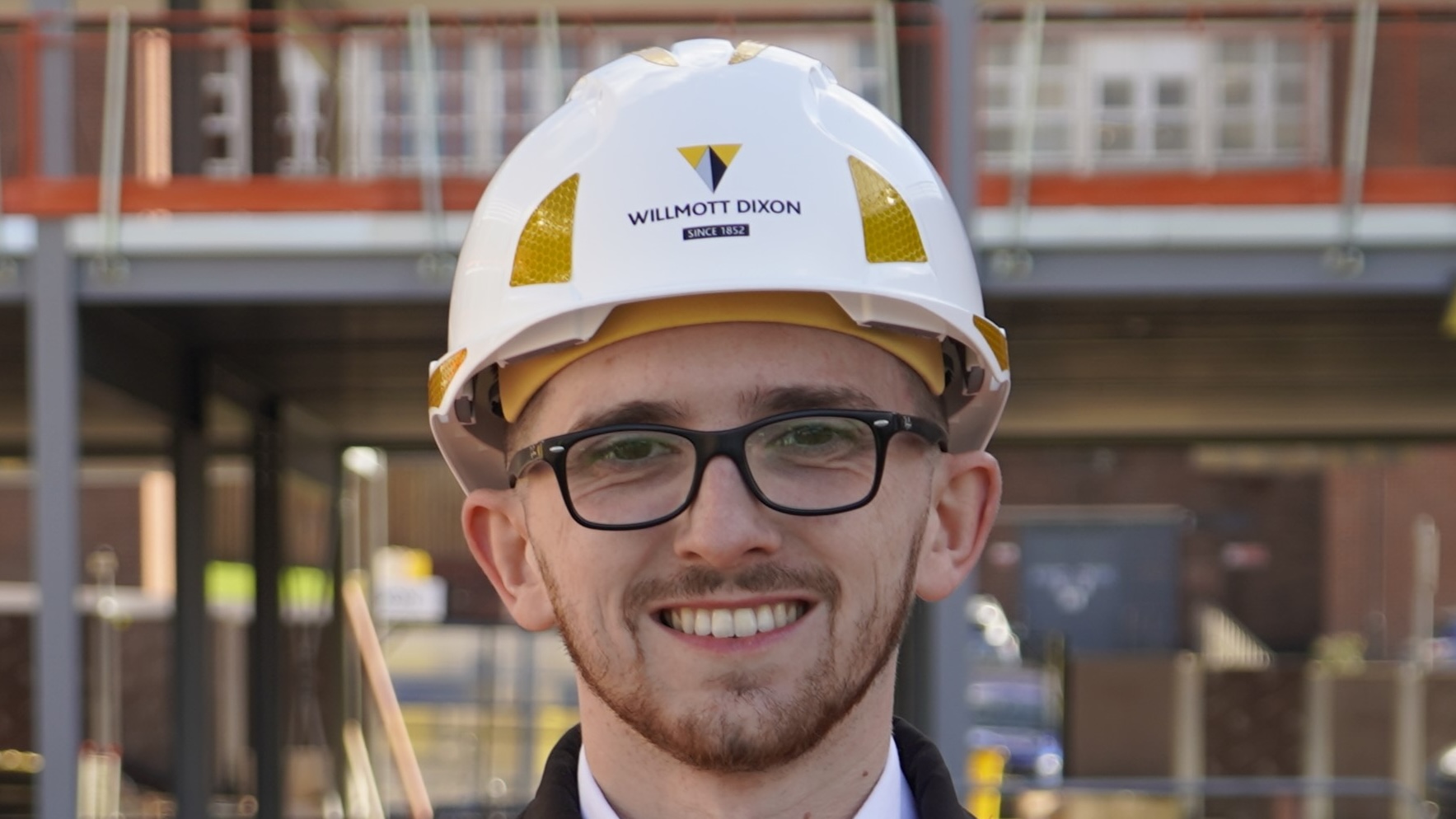
Neil Thompson: starting over in New Zealand
A notable absentee from both Digital Construction Week and the Digital Construction Awards was one of the most connected professionals in the sector: Neil Thompson. He had a good excuse for not being at either event: he’d moved to New Zealand, joining local engineering consultancy Beca as head of digital transformation. DC+ finds out more about his move.

Thompson’s career in the UK includes significant stints at Balfour Beatty and Atkins/AtkinsRéalis (latterly as director, digital integration and delivery), secondment to the Centre for Digital Built Britain (CDBB) and involvement in Project 13. What on earth is he doing moving to the other side of the world?
DC+ catches up with him nearly two months after his 18,300km move to Auckland on New Zealand’s North Island, and asks: what brought about the move?
“It’s more of a family choice. It’s a different kind of changing job story: part of the equation is family and the work/life balance,” Thompson explains. “In all honesty, 18 months ago, I was in my dream job at AtkinsRealis, and I was in my forever home. There wasn’t a long-term family plan to do this sort of thing.”
He and his wife (a clinical psychologist working in the NHS) had received offers to work abroad before, but a combination of his sister living in New Zealand, a CDBB peer moving back to the country and a desire to find a better work/life balance put the islands on his family’s agenda.
“In New Zealand, there is a better grasp of life/work balance, and there’s an expectation of you doing adventurous things,” he says. His CDBB peer, Amelia Burnett (now at Bentley Systems in New Zealand), introduced him to Beca’s then-chief digital officer. “We hit it off and here I am,” Thompson reveals.

“If I were to provide any advice to anyone moving to any other country, not just New Zealand, it’s that you need to listen and be respectful of their culture: don’t think you can just turn up with a UK-centric view and assume you know best.”
It’s a big job
Beca is a big player, not just in New Zealand, but also in the wider Asia-Pacific region. It employs more than 4,500 people (half of whom are in New Zealand) in 24 offices. Thompson says: “It is quite a special organisation: it’s employee-owned and it’s the largest in this region – it’s quite powerful in this part of the world.”
Diving into the new role, he notes with a laugh that “it’s a big job”. Indeed, his remit is wide-ranging and will see him working across borders and cultures.
“There’s a focus on being fit for the future, how we do new and interesting things,” Thompson says. “There’s internal innovation and how we do things cheaper, faster, smarter, but doing things cheaper, faster, smarter also enables us to do bigger, riskier and longer engagements.”
Delving deeper, he adds: “Beca regularly reflects on how to avoid the ‘Kodak moment’. There’s an aspect of R&D and what we’re going to do for the future.”
Enabling diversification, whether into other countries or industry sectors, is also in Thompson’s scope. “Beca is in all the usual engineering markets – buildings, structures and civil engineering – but it also does a lot of work in defence and applied technologies, and food and beverage manufacturing facilities. So the question of where next to diversify services and how to enter those markets is also part of my role,” he explains.
“Beca can move into more advisory activity, not managing consultancy as such, but this new variety of engineering consultancy that’s able to provide better decision-making for business cases and infrastructure as a whole, both in the private and public sector. Also, there’s an emerging movement around industrialised construction here and in Australia for Beca to get involved in.
“And there’s a move up the value chain by taking the things that were done in the UK around Project 13 and building integrators and capable owners, and for Beca to become a host, an integrator or a configurator of platforms to host data and information and capabilities that go across that whole value chain.”
Spotting connections
In his time in the UK, Thompson’s career was never limited to the day job: as well as his involvement in the CDBB and Project 13, he was also an honorary associate professor at UCL and co-presenter of the Digital Twin Fan Club.
Is he expecting to get stuck into New Zealand’s stakeholder groups in a similar vein? “Absolutely,” he responds. He notes that New Zealand is in recession at the moment, and, much like the UK more than a decade ago, that creates the opportunity for digital approaches – like the BIM Task Group in the UK in 2011 – to seize the moment and contribute to growth. He’d like to help steer the industry into a new, evermore collaborative phase.
He adds that public sector infrastructure is highly fragmented in New Zealand. “I’d like to be able to encourage the government to the means for better data and information management,” he says.
As Thompson settles into life in New Zealand, he’s already extending his impact beyond Beca. He reveals: “I’ve just begun my role as an expert adviser for AI procurement and regulation innovation at the New Zealand government, working with the Ministry of Business, Innovation and Employment.
“One of the government’s key policy objectives is to reform consenting – or planning, as it’s called in the UK. I’m really excited to continue my passion for realising the value of data for the public good and to help shape the role technology will play in transforming government services and regulation.”
He needs to understand requirements in all the countries Beca operates in for innovation to work across borders. He cites data governance as an example – no two countries in which Beca operates have the same data security requirements. “Nice problem to have,” he laughs.
Hitting the ground running
“The brilliant thing about New Zealand is that it’s influenced by what happens in the UK,” Thompson explains. “There’s lots of talk about Project 13, and talk about CDBB and digital twins and the National Digital Twin Programme. Most recently, the Wellington Council is leading the charge of a country-wide initiative following in the footsteps of the National Underground Asset Register. But interestingly, here they take inspiration and do something with it, and in all honesty, they’re probably taking it a bit further, because they have this ‘can-do’ spirit and ingenuity. The innovation culture here is incredible.
“At the same time, I’ve been inspired by Māori culture. I’ve recently begun to understand the role of data sovereignty in Māori thinking, where knowledge is treated like a precious mineral. There’s also a deep respect for land and water, and you can feel that shaping conversations around sustainability and protecting the natural environment. The place itself is incredibly beautiful and clean, and that cultural grounding adds a layer of meaning to how technology and progress are approached here.”
He remembers his time in the UK and his stints with Balfour Beatty and AtkinsRealis fondly (in both cases “the smartest people available making really difficult things happen”). He says: “I’ll miss the people and the projects. I worked on almost every single bit of critical infrastructure: data centres, roads, rail, airports, nuclear, and energy. I also managed to achieve my dream of doing stuff with robots!”
His advice for anyone starting afresh is simple: “If I were to provide any advice to anyone moving to any other country, not just New Zealand, it’s that you need to listen and be respectful of their culture: don’t think you can just turn up with a UK-centric view and assume you know best.”
Ending the interview, DC+ asks if he’s embraced the New Zealand spirit and done anything adventurous. Thompson fires back: “I’ve bungee jumped already! You can’t get anything more Kiwi than that!”
Keep up to date with DC+: sign up for the midweek newsletter.







